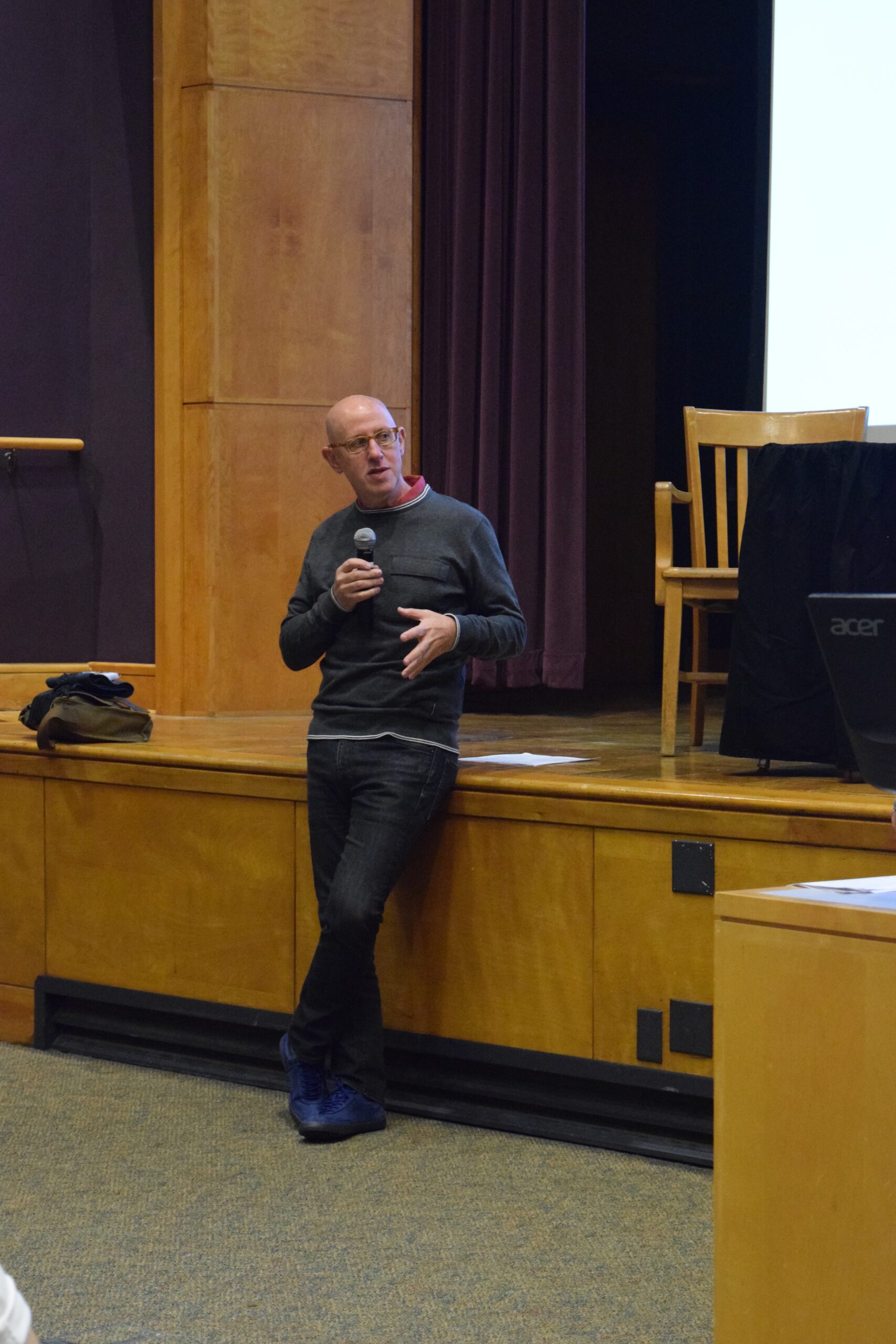Sergio Chejfec comments on social unrest through postcards
November 9, 2018
 Isabel Alexander
Isabel AlexanderAlternating between English and Spanish, past and present, reality and fiction, Sergio Chejfec came to Bowdoin on Monday to read and discuss his essay “The Revenge of the Idyllic.” A Guggenheim Fellow and distinguished writer in residence at NYU’s MFA in Spanish program, Chejfec has published a number of short stories, essays and books which have since been translated into various languages.
Born and raised in Argentina, Chejfec chose to read a portion of his work in Spanish to show the effect literature can have when read in one’s native tongue, followed by an English translation.
“I will read [in Spanish] with the idea that you can get the music of my literature in my own language,” he said.
The reading was then followed by a discussion of the piece in both English and Spanish.
“The Revenge of the Idyllic” is a narrative commentary of Chejfec’s own experience buying postcards in Caracas, Venezuela. Chejfec lived in Caracas between 1990 and 2005, both before and during periods of political unrest in Venezuela. He acknowledges that these experiences in Caracas undoubtedly shaped who he is as a writer.
“Venezuela was a very interesting and good experience, because [it] is a wonderful country, with warm people and very hospitable society. [But] from 1999 through the present, there has been very complicated political and social unrest, very entropic. So my memories of Venezuela [are like] memories of another country,” he said.
Often, Chejfec writes in a dreamy manner, mulling over themes like city idylls or the surface of reality. When discussing his personal writing style, he pointed out that he prefers to hint at meanings and revelations rather than simply tell.
“I try to walk on the surface of a process, reality or meaning, to show the depth of that meaning,” he said.
In his essay, Chejfec employs pictures he found in a collection of 1950s era postcards that show a “Caracas moderna,” full of life and utopian depictions of the city’s landscapes.
But upon further reflection, Chejfec admits that the postcards do not show the truth of Caracas and are instead beautiful “elements of fiction-reality.”
Still, Chejfec manages to use these postcards in an extended allegory for various aspects of the idyllic, explaining that the holes chewed by termites in some of the postcards are emblematic of the evils caused by the expanding city.
“I don’t have a theory in terms of [their] logical meaning … I try to explore the poetic dimensions of this kind of accidental process,” Chejfec said.
Andrew W. Mellon Postdoctoral Fellow in Spanish Sebastian Urli facilitated a discussion following Chejfec’s reading. Then, he opened the floor up to questions from student participants as well. Most audience members were from the Hispanic Studies advanced seminar, “The Southern Cone Revisited,” and conversed with Chefjec in both Spanish and English when asking their questions.
When asked about his writing process, Chefjec explained that he does not try to write in any specific order and that he often begins writing without a plan, a system that manifests itself in the labyrinthine nature of much of his writing.
“I don’t write in terms of beginning or ending, my story can be confused from the beginning, the middle, or the end. It’s spiral writing,” he said.
Chejfec concluded the lecture by explaining his own interpretation of literary suspense and why it’s common in his writing.
“Maintaining the cloth of suspense works in a double way, because it stops the plot, but at the same time, it still seems to move something else … It can be a different way of challenging what you expect from a book,” said Urli, in translation for Chejfec.
In the same vein, if Chejfec’s lecture imparted just one thing to its audience, it would be this: challenge what you expect from books, from life, from the process of writing and editing itself. Challenge your perception of the everyday and hold on to your language and culture.

Comments
Before submitting a comment, please review our comment policy. Some key points from the policy: